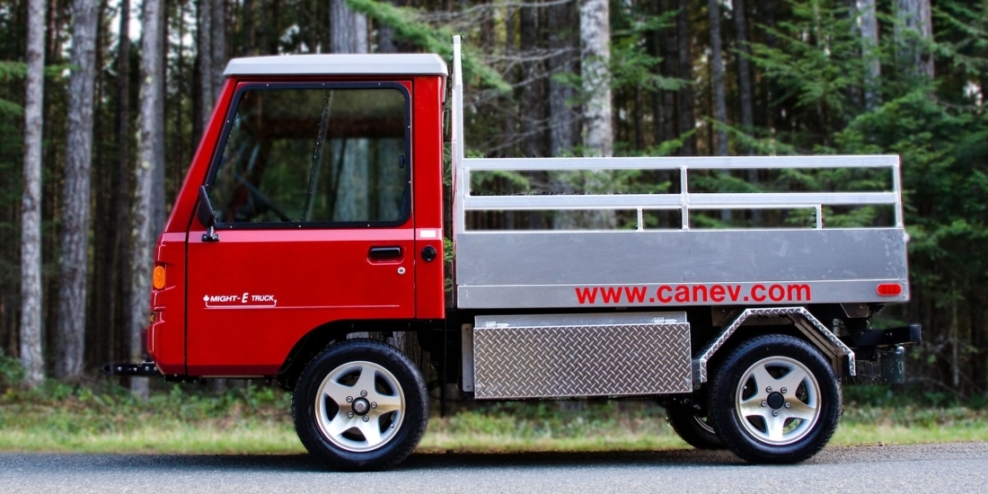Long before Elon Musk made Tesla a household name, Randy Holmquist was tinkering around with electric cars.
In 1995, after converting a 1963 Spitfire into an electric vehicle using an aircraft generator as a motor, he launched Canadian Electric Vehicles (CanEV) in his rural Parksville workshop.
“Electric vehicles were the weirdest things back then,” Holmquist said in a Douglas Magazine article several years ago.
Not so anymore, In 2017, Alberta engineer Todd Maliteare bought the company. By then, CanEV had built a solid reputation with its Might-E Truck, a small light-duty work vehicle made specifically for municipalities, college campuses, airports and other institutional customers.

Maliteare planned to grow, diversify production, and take the company to the next level. And last March, CanEv got a big boost when CleanBC Advanced Research and Commercialization (ARC) awarded the company $294,000 to design a street and highway-ready version of its Might-E Truck.
The grant will help the small company develop the third generation of the low-speed Might-E Truck and a new medium-duty truck that will achieve Canadian Motor Vehicle Safety Standards to allow operation on any road.
According to Maliteare, ARC’s investment “will place Canadian EV technology at the front of a market sector that is set to explode in this decade. We are proud to be a part of Canada’s response to the global warming crisis.”
“We believe that BC-based EV manufacturing has a bright future,” Maliteare told Black Press in a recent story.
In a government press release, Bruce Ralston, Minister of Energy, Mines and Low Carbon Innovation, said that “supporting smart B.C. companies like CanEV to develop innovative technology” will help the province meet emission reduction targets.
BC is also offering rebates to businesses adopting commercial EVs through the CleanBC Go Electric program.









